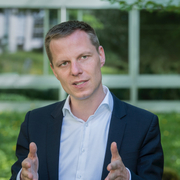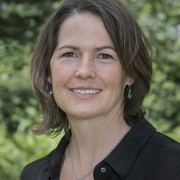- Level Foundation
- المدة 13 ساعات hours
- الطبع بواسطة University of Zurich
-
Offered by

عن
This course will prepare you for teaching science in higher education. In this MOOC you will learn to make your knowledge as an excellent researcher accessible to your students. We will show you how to communicate science to novices as well as advanced students in science. You will experience the value of teaching with analogies and you will be guided to train your students' competences. Based on up-to-date findings from research into teaching and learning science you will be able to - implement evidence-based strategies into your own teaching, - use students everyday-conceptions for the development of courses, - prepare analogies and models to teach in your field, - implement problem-based teaching, - set up for experiments and teach the nature of science. This course enables you to teach abstract science topics to your students and make them become active and successful learners. The course is based on lectures (videos), handouts (knowledge-to practice briefs), which supplement the knowledge taught in the lectures and assignments to implement the teaching strategies into your own practice.الوحدات
1.1 Course Overview
1
Videos
- Course Overview
2
Readings
- Join our research project on effective professional development!!
- READ ME!! How to get the most out of our course
1.2 Evidence-based science teaching
1
Videos
- Evidence-based science teaching
2
Readings
- K2P Brief #1 Formative Assessment
- K2P Brief #2 Powerful Feedback
1.3 Rate teaching strategies
1
Videos
- Rate teaching strategies
1.4 How the brain computes information
1
Videos
- How the brain computes information
1.5 The principles of learning I
1
Videos
- from behaviourism...
1.6 The principles of learning II
1
Videos
- ...to constructivism
1.7 Encouraging higher order of thinking
1
Videos
- Encouraging higher order thinking
Task of the week
1
Peer Review
- Evidence-based teaching strategy
3
Readings
- READ ME - Help FLAG those who weaken the peer review system
- READ ME, TOO - IMPORTANT general instructions for assignments and how they are graded
- K2P Brief #15 Effective Peer Review
2.1 Identifying everyday conceptions
1
Videos
- Identifying everyday conceptions
2.2 No teaching without everyday conceptions
1
Videos
- No teaching without everyday conceptions
2.3 Assessing your students conceptions
1
Videos
- Assessing your students conceptions
1
Readings
- K2P Brief #3 Initiating Conceptual Change
2.4 Learning as conceptual change
1
Videos
- Learning as conceptual change
1
Readings
- K2P Brief #4 Making Conceptual Change Happen
2.5 Learning as ontological change
1
Videos
- Learning as ontological change
2.6 Tips for engagement
1
Videos
- Tips for engagement
Task of the week
1
Peer Review
- Initiate a conceptual change
3.1 Why science is hard to grasp
1
Videos
- Why science is hard to grasp
2
Readings
- K2P Brief #5 Big Ideas in Science
- K2P Brief #6 Backward Design
3.2 Using analogies
1
Videos
- Using analogies
1
Readings
- K2P Brief #7 - Teaching with Analogies - part 1
3.3 How to teach analogies
1
Videos
- How to teach analogies
1
Readings
- K2P Brief #8: Teaching with Analogies - part 2
3.4 Successful instructional analogies
1
Videos
- Successful instructional analogies
3.5 Multiple representations in science
1
Videos
- Multiple representations in science
Task of the week
1
Peer Review
- Develop an analogy
4.1 Make science relevant
1
Videos
- Make science relevant
4.2 Active learning with socioscientific issues
1
Videos
- Active learning with socioscientific issues
1
Readings
- K2P Brief #9 Connecting Science and Society
4.3 Tasks for active learners
2
Videos
- Tasks for active learners
- Active Learning with Digital Tools
2
Readings
- K2P Brief #10 Active Learning
- K2P Brief #16 Teaching with Digital Tools
4.4 Setting goals for students
1
Videos
- Setting goals for students
1
Readings
- K2P Brief #14 Assessing Student Performance
4.5 Supervision of theses
1
Videos
- Supervision of theses
4.6 Communication risk and uncertainity
1
Videos
- Communication risk and uncertainity
Task of the week
1
Peer Review
- Reframe your teaching
5.1 Conducting a lab class
2
Videos
- Conducting a lab class
- Interview with a digital simulation user
1
Readings
- K2P Brief #11 Inquiry Teaching in the Lab
5.2 Preparing a lab class
1
Videos
- Preparing a lab class
5.3 Design principles for experiments
1
Videos
- Design principles for experiments
5.4 Identifying and fostering students' experimental competences
2
Videos
- Identifying and fostering students' experimental competences
- Teaching practical skills with digital simulations
5.5 Changing students conceptions about the nature of science
1
Videos
- Changing students conceptions about the nature of science
1
Readings
- K2P Brief #12 Teaching the Nature of Science
5.6 Models and modelling in science
1
Videos
- Models and modelling in science
1
Readings
- K2P Brief #13 Teaching with Models
Task of the week
1
Peer Review
- Foster students' inquiry skills
1
Readings
- Be a part of our research (again!) - help us improve the course
Auto Summary
"Teaching Science at University" is a foundational course designed for those in the domain of Personal Development, focusing specifically on enhancing your ability to teach science in a higher education setting. Developed by Coursera, this course is perfect for educators aiming to translate their research expertise into effective teaching practices. Led by an expert instructor, the course content is robust and engaging, featuring video lectures, practical handouts, and assignments. It covers a range of essential strategies including the use of analogies and models, evidence-based teaching methods, problem-based learning, and the preparation of scientific experiments. With a comprehensive duration of 780 minutes, the course offers flexible subscription options to suit different needs, including Starter and Professional packages. This program is ideal for university-level educators and researchers who aspire to make complex scientific concepts accessible and engaging for both novice and advanced students. Embark on this course to transform your teaching approach, making your science classes not only informative but also inspiring and effective.

Kai Niebert

Sara Petchey


